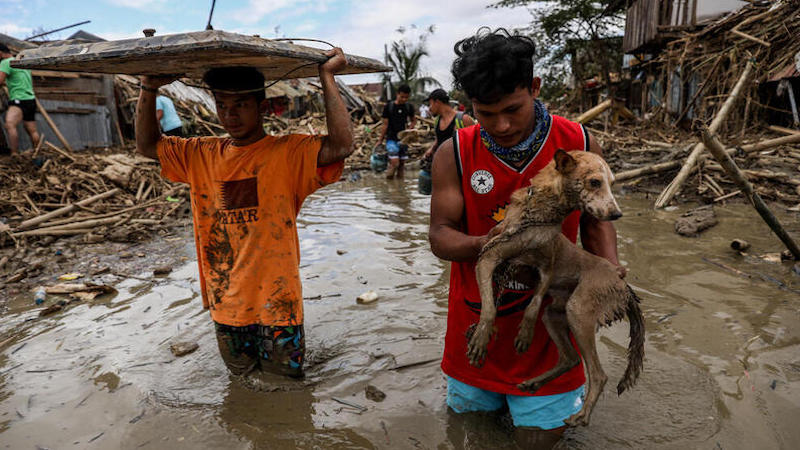The US wants extra seats for major donors to the fund on top of developed country representation, sparking accusations of “double counting”
The USA has hit back at claims that it is trying to stack the board of a new climate fund by giving developed countries more seats than developed ones.
Campaigners at a crunch meeting in the Dominican Republic this week said the US proposal on how to divide the board of the new loss and damage fund “tilts power towards wealthy nations”.
But, in the meeting room of a five-star hotel in Santo Domingo, US government negotiator Christina Chan yesterday told these campaigners that they were wrong.
“From our math it is equal,” she said. “It is balanced, so if you’re feeling like it’s not, I don’t know, our math works out that it is.”
The board’s makeup
Chan is part of the transitional committee on loss and damage, which is working out the details of a new fund to address the costs of climate destruction.
A US proposal published this week said that the fund’s board should include ten members from the wealthy Western Europe and Others group, which includes North America, Australasia and Turkey and hosts about an eighth of the world’s population.
It adds that four seats should go to the biggest financial contributors to the fund. Chan said yesterday that "we're not making assumptions of where those contributors are coming from".
But as rich nations have the most money, are disproportionately historically responsible for the climate crisis and currently give the most climate finance, these four are expected to be wealthy nations like the US, Japan, France, Germany and the UK.
The US proposes that seven seats should go to the four regional groups which make up the rest of the world. These are mostly nations the UN defines as developing countries, with the exception of Japan and some Eastern European nations.
There should also be two seats each for small island developing states and the world's poorest nations - known as Least Developed Countries.
Another four seats, the US suggests, should go to representatives of civil society, indigenous peoples, the private sector and philanthropy.
Campaigners response
While Chan called this "balanced", campaigners argue that it's effectively at least 14 developed country members against a maximum of 11 developing countries.
Respondin
Read More

